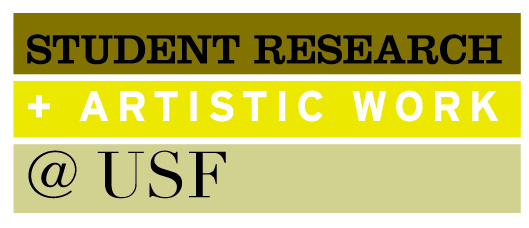Major
Asia Pacific Studies
Research Abstract
Modernizing the “Hermit Kingdom”:
Bridging the Cultural and Economic Gap through Soft Power Diplomacy
Following the Korean War, the Republic of Korea embraced modernization and rose as an economic power while its Northern counterpart employed isolationist policies and acquired the name “Hermit Kingdom.” In recent years, however, the “Hermit Kingdom” is exhibiting potential for change in under the Kim Jong-Un regime. In the wake of continued economic strife, shifting East Asian political dynamics, and insecure power consolidation, Kim appeared in the international scene with a different attitude: eagerness for dialogue. Such change in Pyongyang’s political stance engenders renewed hope for the entire region, despite the unreliability and uncertainty. Thus, this paper attempts to offer potential direction for foreign diplomacy regarding the regime that has employed nuclear provocation as a survival tactic. Both the complete denuclearization of the Korean reunification at the current time frame is not only unrealistic but also a source for political instability in East Asia. Therefore, the most logical and stable approach for Pyongyang is internal transformation driven from the exchange of communication vis-à-vis two Koreas. A small-scale exchange of human capital and financial capital can stimulate a positive discourse on further interaction and work as a trust-building measure. Both Koreas have more to gain than to lose from joint ventures, as the South is desperate for a younger workforce and the North for financial capital. Through a critical consideration of the Kaesung Industrial Complex, Trump Diplomacy, international sanctions, as well as the unreliability of Pyongyang, this paper will contend that soft power diplomacy led by the Moon Administration will be the most effective approach in the long run. Moreover, the methodology of research utilized in this paper is the analysis of Korean language immersion programs, an inter-Korean translation application called Univoca, critical assessment of current events, and incorporation of relevant expert analysis. Gradual modernization of this economically obsolete nation would engender regional cooperation and maintain status quo aligned with the geopolitical interest of all relevant parties. The first step would be bridging the cultural and economic gap, paving way for progress for East Asia and the world.
Keywords: North Korea, DPRK, South Korea, ROK, Soft Power, Cultural Diplomacy, International Relations, Reunification, Modernization, Transformation, Economic Gap
Faculty Mentor/Advisor
Evelyn Chien
Modernizing the Hermit Kingdom: Bridging the Economic and Cultural Gap through Soft Power Diplomacy
Modernizing the “Hermit Kingdom”:
Bridging the Cultural and Economic Gap through Soft Power Diplomacy
Following the Korean War, the Republic of Korea embraced modernization and rose as an economic power while its Northern counterpart employed isolationist policies and acquired the name “Hermit Kingdom.” In recent years, however, the “Hermit Kingdom” is exhibiting potential for change in under the Kim Jong-Un regime. In the wake of continued economic strife, shifting East Asian political dynamics, and insecure power consolidation, Kim appeared in the international scene with a different attitude: eagerness for dialogue. Such change in Pyongyang’s political stance engenders renewed hope for the entire region, despite the unreliability and uncertainty. Thus, this paper attempts to offer potential direction for foreign diplomacy regarding the regime that has employed nuclear provocation as a survival tactic. Both the complete denuclearization of the Korean reunification at the current time frame is not only unrealistic but also a source for political instability in East Asia. Therefore, the most logical and stable approach for Pyongyang is internal transformation driven from the exchange of communication vis-à-vis two Koreas. A small-scale exchange of human capital and financial capital can stimulate a positive discourse on further interaction and work as a trust-building measure. Both Koreas have more to gain than to lose from joint ventures, as the South is desperate for a younger workforce and the North for financial capital. Through a critical consideration of the Kaesung Industrial Complex, Trump Diplomacy, international sanctions, as well as the unreliability of Pyongyang, this paper will contend that soft power diplomacy led by the Moon Administration will be the most effective approach in the long run. Moreover, the methodology of research utilized in this paper is the analysis of Korean language immersion programs, an inter-Korean translation application called Univoca, critical assessment of current events, and incorporation of relevant expert analysis. Gradual modernization of this economically obsolete nation would engender regional cooperation and maintain status quo aligned with the geopolitical interest of all relevant parties. The first step would be bridging the cultural and economic gap, paving way for progress for East Asia and the world.
Keywords: North Korea, DPRK, South Korea, ROK, Soft Power, Cultural Diplomacy, International Relations, Reunification, Modernization, Transformation, Economic Gap



